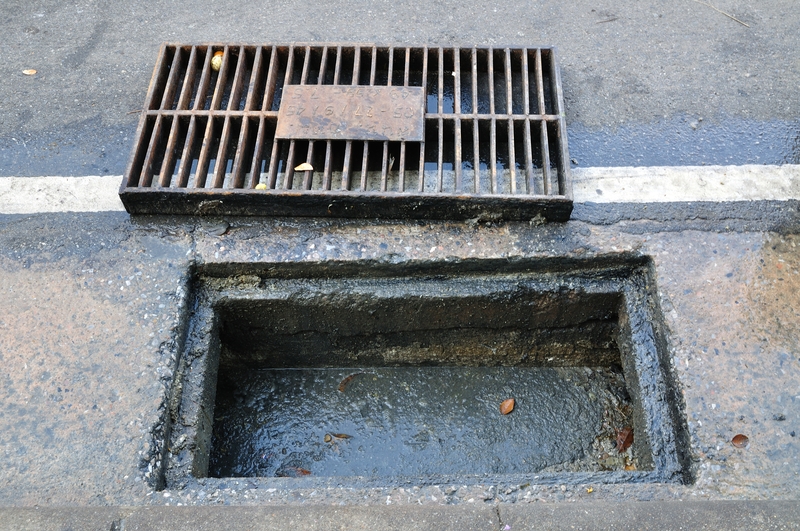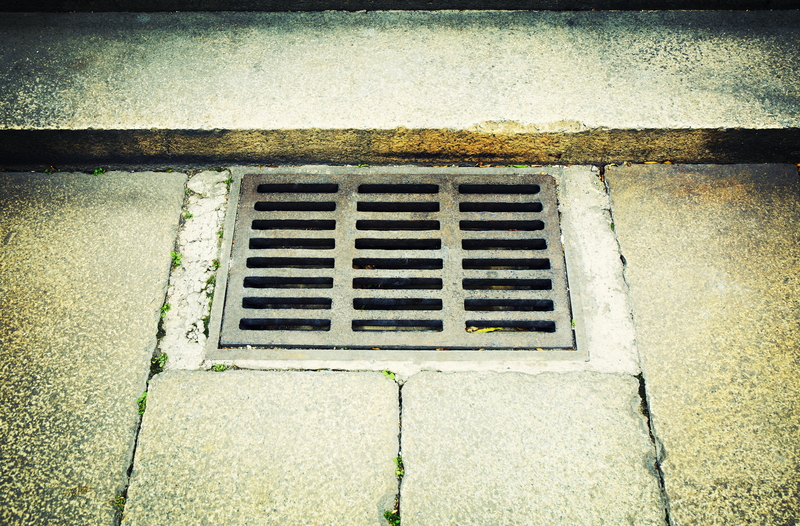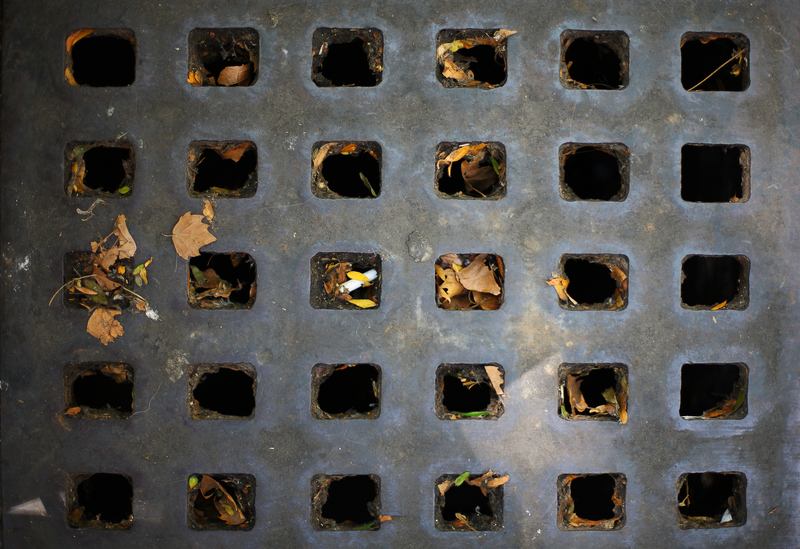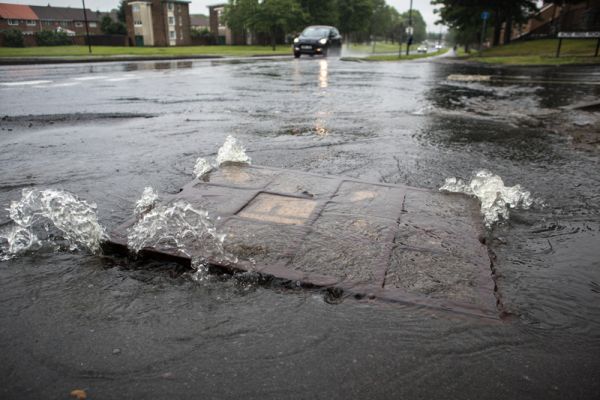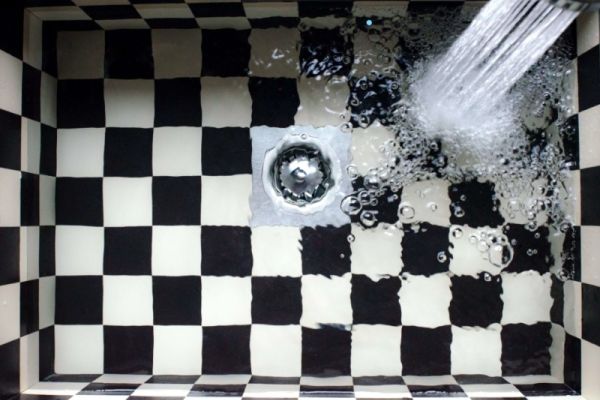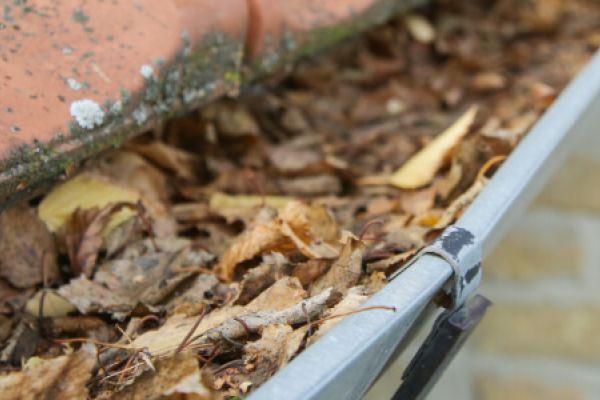In this article
How to unblock a sewage drain?
Having a properly functioning sewage drain is crucial for maintaining a clean and hygienic environment. However, blockages can occur for various reasons, causing inconvenience and potential health risks. If you're faced with a blocked sewage drain and need your drain unblocking, fear not! This comprehensive guide will take you through the step-by-step process of unblocking a sewage drain.
From identifying common causes of blockages to implementing effective solutions, we will equip you with the knowledge and techniques to tackle this issue head-on. By following these steps, you'll be able to restore the smooth flow of wastewater and ensure a healthy and functional sewage system. So, let's dive in and learn how to unblock a sewage drain like a pro!
Why is it important to have a functioning sewage drain?
A functioning sewage drain is essential for maintaining sanitation and hygiene in residential and commercial settings. It is crucial in removing wastewater and sewage from our homes and communities. Blocked drains can accumulate waste, leading to unpleasant odours, unsanitary conditions, and potential health hazards. Let's take a closer look at these.
Waste Removal:
The primary function of a sewage drain is to remove wastewater and sewage from our homes and communities. Waste would accumulate without an efficient drain system, leading to unsanitary conditions and potential health hazards.
Disease Prevention:
A blocked or malfunctioning drain can create stagnant water, which becomes a breeding ground for disease-causing bacteria, viruses, and insects. A functional sewage drain ensures the proper disposal of waste, reducing the risk of waterborne diseases and the spread of pathogens.
Odour Control:
When waste is not effectively drained, foul odours can permeate the surrounding areas, causing discomfort and unpleasant living conditions. A functioning sewage drain helps eliminate these odours, ensuring a more habitable and pleasant environment.
Environmental Protection:
Properly functioning sewage drains play a vital role in protecting the environment. They prevent untreated wastewater from contaminating water bodies, soil, and natural habitats, preserving the ecosystem's balance.
Infrastructure Maintenance:
A clogged drain can lead to structural damage to buildings and properties. Overflowing water can seep into the foundations, compromising their stability. Regular maintenance and timely unblocking of sewage drains prevent costly repairs and prolong the lifespan of infrastructure.
Signs to look out for to know if you have a Blocked Drain
Slow Drainage
Slow drainage is one of the most common signs of a blocked sewage drain. If you notice that water is taking longer than usual to drain from sinks, showers, or toilets, it may indicate a blockage in the drainpipe. This slow drainage is often caused by the accumulation of debris, grease, hair, or other substances that impede wastewater flow.
Unpleasant Odours
Another telltale sign of a blocked sewage drain is the presence of an unpleasant smell. When waste gets trapped in the drains due to a blockage, it can emit foul smells that permeate through the plumbing system and into your living spaces. These odours can be particularly strong near drains or in areas where the blockage is occurring.
Strange Gurgling Sounds
Hearing gurgling noises from your drains or toilets could be a sign of a blocked sewage drain. These sounds occur when air bubbles try to escape through the blocked pathway, causing gurgling or bubbling noises. If you notice this happening consistently, it clearly indicates an obstruction in your drain system that needs to be addressed.
Paying attention to these signs is crucial as they can help you identify and address a blocked sewage drain before it escalates into a more serious issue. If you notice any of these signs, it's advisable to take prompt action in clearing drains to prevent further damage and ensure the proper functioning of your drain system.
What equipment will you need for your sewage drain unblocking?
There are a few tools you will need to help your blocked drains start to drain properly again. Let's take a look at them so you can prepare for any drain blockages that may occur to you.
Plunger: A plunger is a basic tool to create suction and dislodge minor blockages in toilets, sinks, or drainage pipes.
Drain Snake or Auger: A drain snake, also known as a plumber's snake or auger, is a flexible cable with a corkscrew-like tip that helps break up and remove stubborn clogs in drains and pipes.
Drain Cleaner: Various types of drain cleaners are available, including homemade solutions (such as baking soda and vinegar) or commercial drain cleaning products. These can help dissolve or break down blockages.
Bucket or Container: Having a bucket or container on hand is helpful for collecting water or debris that may come out when dealing with a blocked sewage drain.
Protective Gear: It's advisable to wear protective gear such as gloves and goggles to prevent contact with potentially harmful substances or splashing water during the unclogging process.
It's important to note that for more severe blockages or if you're unsure about handling the situation yourself, it's best to seek professional assistance from a qualified plumber who will have the necessary equipment and expertise to resolve the issue safely and effectively.
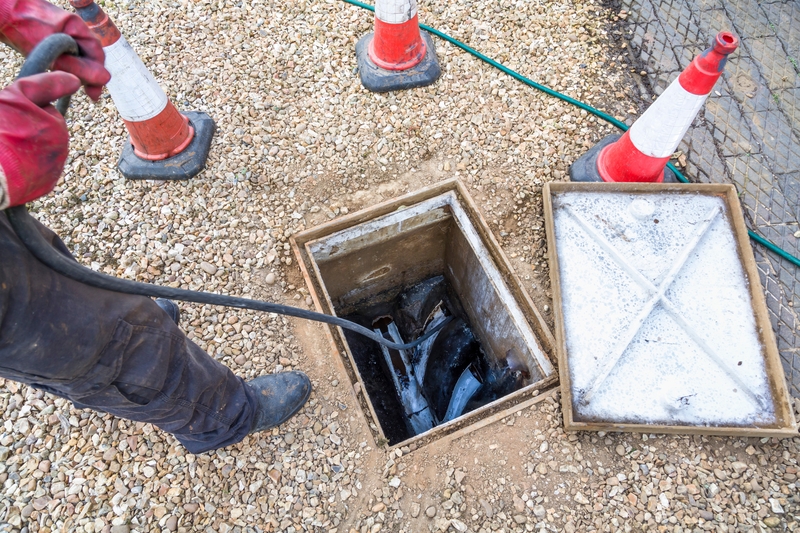 Steps to Unblock a Sewage Drain
Steps to Unblock a Sewage Drain
Now that we know what signs to look out for to determine if you have a blocked drain and what tools we need to help fix the clogged drain, let's take a look at the steps for actually unblocking drains.
Step 1: Assess the Severity of the Blockage
Before attempting any unclogging method, it's important to assess the severity of the blockage. Determine if it's a minor or stubborn clog in the drainage pipe. If you notice multiple drains backing up simultaneously or sewage backup, it may indicate a more severe blockage that requires professional assistance via drain clearance.
Step 2: Use a Plunger to Clear Minor Blockages
For minor blockages, start by using a plunger to help clear drains. Ensure enough water is in the fixture to cover the plunger's cup. Place the plunger over the drain and vigorously plunge up and down for about 20-30 seconds. Repeat this process a few times, and then check if the blockage has cleared by running water down the drain.
Step 3: Try Using a Drain Snake for Stubborn Clogs
If the plunger fails to clear the blockage, try using a drain snake. Insert the snake into the drain and rotate it while pushing forward. This motion helps break up the clog and allows it to be pulled out. Be cautious not to damage the pipes. If you encounter resistance or are unsure how to use a drain snake correctly, it's best to seek professional help.
Step 4: Utilise Homemade or Commercial Drain Cleaners
If the blockage persists, you can use homemade or commercial drain cleaners. Mix equal parts of baking soda and vinegar for homemade solutions, pour it down the drain, and let it sit for about an hour. Then flush it with hot water. Alternatively, you can try a commercial drain cleaner following the manufacturer's instructions.
Step 5: Call a Professional if All Else Fails
If all the previous steps fail to unblock the sewage drain, it's time to call a professional plumber. Trained plumbers have the expertise, tools, and equipment to tackle even the most stubborn blockages safely and effectively. They can use specialised techniques like hydro jetting or professional-grade tools to remove the clog and restore proper drainage.
Preventive Measures to Avoid Future Blockages
Regular Maintenance and Cleaning
One of the most effective ways to prevent future blockages in your sewage drain is by practising regular maintenance and cleaning. Schedule routine drain cleaning with a professional plumber who can identify any potential issues before they escalate. Additionally, consider periodic drain cleaning to remove any debris, grease, or hair build-up that could lead to blockages over time.
Proper Disposal of Waste
Proper disposal of waste is crucial in preventing blockages. Ensure that only appropriate materials are flushed down toilets or drained into sinks. Avoid disposing of items like food scraps, grease, sanitary products, wipes, or other non-biodegradable materials down the drains. Instead, dispose of them in designated waste bins or compost where applicable.
Avoid Flushing Non-Degradable Items
Toilet flushing should be reserved for human waste and toilet paper. It's essential to avoid flushing non-degradable items such as baby wipes, cotton balls, dental floss, feminine hygiene products, or paper towels. These items can accumulate in the drain and cause blockages. Encourage everyone in your household or workplace to adhere to these guidelines.
Install Drain Strainers or Screens
Consider installing drain filters or screens in sinks, showers, and bathtub drains. These simple devices catch hair, soap residue, and other debris, preventing them from entering the drainpipes. Regularly clean the filters or screens to ensure their effectiveness.
Educate and Raise Awareness
Educate household members, employees, or residents about proper drain usage and the consequences of improper waste disposal. By raising awareness, you can encourage responsible habits that contribute to maintaining a clear and functioning sewage drain system.
By implementing these preventive measures, you can significantly reduce the risk of future blockages in your sewage drain. Regular maintenance and cleaning, proper waste disposal, avoiding flushing non-degradable items, and installing drain strainers or screens all contribute to a healthier and more efficient drainage system.
Final things to remember
Preventive measures are crucial in avoiding future blockages and maintaining a healthy sewage system. Regular maintenance and cleaning, proper waste disposal, and avoiding flushing non-degradable items are essential practices. Installing drain strainers or screens and raising awareness among household members and employees contribute to a clean and efficient environment.
By being proactive and taking the necessary steps to unblock and maintain your sewage drain, you can enjoy a clean and problem-free environment while promoting sustainability and protecting our precious water resources.
Please do not hesitate to contact us if you would like any free advice or help with blocked drain unblocking. Here at Cotswolds Drainage, a professional drainage engineer will be happy to help with any of your blocked drain problems - from root ingress to complex drainage issues; we're here to help.
Get in touch
Contact our friendly and professional team via form, phone or email for any drainage issues you may have.
From blocked drains to septic tank repairs and replacements, we're here to help. We have over 25 years of experience and offer 24/7 emergency callouts.
-
01386 882324
-
WhatsApp
-
This email address is being protected from spambots. You need JavaScript enabled to view it. -
See what our customers think
